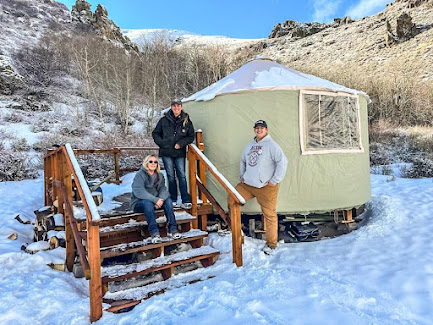As more people embrace the benefits of spending time in nature, it’s essential to ensure our outdoor adventures don’t harm the very environments we love. Sustainable outdoor practices allow us to enjoy the beauty of the natural world while preserving it for future generations. Here are some tips to help you get outdoors sustainably and responsibly:
Plan Ahead and Be Prepared
Sustainable outdoor exploration starts with good planning. Research your destination to learn about rules, guidelines, and potential environmental sensitivities. Pack appropriately, bringing reusable items, weather-appropriate gear, and enough food and water to avoid emergencies that could strain local resources.
Leave No Trace
The Leave No Trace (LNT) principles are the gold standard for sustainable outdoor ethics. These seven principles encourage practices like minimizing campfire impact, traveling on durable surfaces, and disposing of waste properly. By following these guidelines, you can reduce your impact on the environment and help maintain the integrity of natural spaces.
Choose Eco-Friendly Gear
When selecting outdoor equipment, prioritize sustainability. Look for gear made from recycled or responsibly sourced materials. Durable, high-quality items last longer and reduce waste over time. Many brands now offer options certified for sustainability and ethical production.
Travel Sustainably
Getting to your outdoor destination can significantly impact the environment. Reduce your carbon footprint by carpooling, taking public transportation, or choosing closer-to-home adventures. Consider biking or hiking to your destination when possible.
Stick to Designated Trails
Wandering off established trails can damage fragile ecosystems, contribute to soil erosion, and disturb wildlife habitats. Stay on marked paths to protect native plants and animals and prevent unnecessary damage to the environment.
Respect Wildlife
Admire wildlife from a distance and never feed animals. Human food can harm their health and disrupt natural behaviors. Respect their habitats by keeping noise levels low and avoiding areas marked as sensitive or off-limits.
Use Reusables and Avoid Single-Use Plastics
Pack your adventure supplies in reusable containers. Bring a refillable water bottle, metal utensils, and reusable food storage options to minimize waste. Avoid single-use plastics like disposable water bottles, utensils, or snack bags.
Minimize Campfire Impact
While campfires are an enjoyable part of outdoor adventures, they can be harmful if not handled responsibly. Use portable stoves for cooking, and if fires are permitted, keep them small and within designated fire rings. Always ensure your fire is completely extinguished before leaving.
Support Local Conservation Efforts
Contribute to organizations that protect and maintain outdoor spaces. Many parks and trails rely on volunteers and donations to preserve their beauty. Participating in clean-up events or trail maintenance days is a great way to give back.
Educate Yourself and Others
Understanding the environment, you’re exploring is key to sustainable adventures. Learn about local plants, animals, and ecosystems to appreciate their value and fragility. Share your knowledge with friends and family to encourage a broader culture of environmental stewardship.
Leave It Better Than You Found It
Make it a habit to pick up any litter you come across, even if it’s not yours. Bringing a small trash bag or container can help you leave the area cleaner and healthier than when you arrived.
By taking these steps, you can enjoy the wonders of the outdoors while protecting and preserving them for future generations. Sustainable exploration not only benefits the planet but also deepens your connection to nature, creating a more meaningful and fulfilling outdoor experience. Let’s all do our part to ensure the natural world remains vibrant and thriving for years to come.






